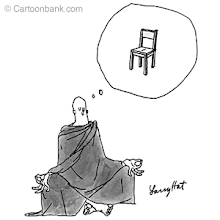Walking promotes good physical health, but it may also help maintain memory and cognitive function for years, a study finds.
The research, published online Wednesday in the journalNeurology, is based on a study of 299 men and women, average age 78, who were followed for nine years. The study participants were asked about their physical activity, which was calculated as number of blocks walked per week (walking was the most common exercise). Study subjects walked from zero to 300 blocks over a one-week period. High-resolution brain scans were done on the participants nine years after the beginning of the study.
The more the participants walked at the beginning of the study, the greater their brain volume nine years later. This was still the case after researchers controlled for a number of factors, including age, gender, body mass index and education.
How many blocks of walking per week did it take to see improvement? The magic number was 72, or about six to nine miles. Walking more than that didn't further improve gray-matter volume.
Although all participants were deemed cognitively normal at the beginning of the study, 40% developed cognitive impairment or dementia four years in. However, those who walked the most reduced their risk of acquiring memory loss by half.
Lead author Kirk Erickson of the University of Pittsburgh said in a news release, "If regular exercise in midlife could improve brain health and improve thinking and memory in later life, it would be one more reason to make regular exercise in people of all ages a public health imperative."
-- Jeannine Stein / Los Angeles Times
Copyright © 2010, Los Angeles Times






No comments:
Post a Comment